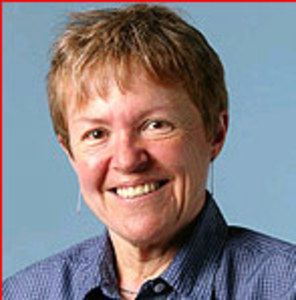Days, even weeks, pass and no one mentions it, but Afghanistan is like a steady drip in another part of the house. It never really goes away, like certain kinds of worry.
It has been brought into relief this week by the sudden deaths of six more soldiers - a tragedy that added to the gloom of a dark Easter weekend, and, if briefly, silenced the petty bickering that passes for political debate in this minority Parliament. The gloom deepened yesterday with news two more Canadians had been killed, bringing the toll to 53 dead since 2002.
But the respectful silence won't last, nor should it. Once the military funerals are over and the Commons returns from its two-week break, there will be renewed focus on the Afghan mission and cautious probing from the opposition - about the effectiveness of Canada's military and aid efforts, about the prudence of recent high-profile military purchases.
If history is a guide, such questions will be dismissed as traitorous by an unyielding prime minister. Stephen Harper's tendency to accuse doubters of undermining Canada's idealistic and courageous soldiers is base rhetorical bullying. Unfortunately, it has also been successful. Harper hasn't entirely silenced his critics, but, through a shrewd mix of macho posturing and appeals to altruism, his Afghan policy prevails.
One problem for his opponents is that withdrawing Canada's 2,500 troops before the agreed-to 2009 deadline will not likely make life easier for hard-pressed Afghans. Some on the left believe Canada has a moral obligation to stay and help. Some even argue advertising our departure date simply motivates the Taliban to wait us out.
New Democratic Party leader Jack Layton wants a speedy withdrawal of Canadian troops, but in favour of renewed diplomacy and enhanced reconstruction efforts. Others - including some Canadian relief workers - say the removal of allied troops will only hasten a Taliban takeover and a return to a medieval theocracy. Others say reconstruction can't start until the countryside is secure.
But CARE Canada director John Watson argues that the military presence in southern Afghanistan, particularly, is not a necessary precursor to reconstruction - indeed, it makes it impossible. Afghans are understandably wary of heavily armed strangers claiming they are trying to help, all the while levelling homes, accidentally killing civilians and tearing up the countryside in pursuit of the Taliban.
Other complications make a tidy resolution unimaginable. In the more stable north, which is enjoying a modest economic boom, international aid projects are continuing apace. What happens there if NATO quits not just the south, but the whole country?
Yet in Kandahar and Helmand provinces, and elsewhere, as Canadians know too well, the Taliban are still strong and foreign troops are unwelcome and unsafe. Most international aid agencies are unwilling to work in these areas, because of a generalized mistrust of Westerners.
Among NATO allies, too, there are differences over tactics and constantly shifting leadership. With 18,000 troops, the Americans have the largest contingent and early on set the tone with their aggressive pursuit of insurgents. The Dutch, with almost 2,000 troops, deliberately avoid confrontation and concentrate on development projects in less volatile areas. German, Italian and other troops are in Afghanistan on the condition they not be sent to the front lines. British and Canadian contingents are attempting the impossible: trying to win hearts and minds from inside their fearsome tanks.
In these circumstances, victory seems impossible, unless it is dishonestly defined. It is certainly hard to imagine how more allied troops will help, yet that is what Australia has offered this week.
Meanwhile, CIDA lists many worthy aid projects under way, or under consideration, on its website. Next week, for instance, the Waterloo-based Mennonite Economic Development Associates opens an office in Kabul to launch a program to help Afghan women in northern Parwan province increase yields from their cottage gardens and sell their extra produce.
That, at least, is the goal. With the Afghan Women's Business Council, the aid group plans to hire local mentors. "The people we are working with are not entirely convinced a better future is on the way," says project organizer Jerry Quigley. Still, such modest, low-profile and locally run ventures are key to building good will, if it isn't too late.
This week's deaths probably aren't enough, alone, to turn public opinion against the war. That may not happen until Harper, or others, begin to argue 2009 is too soon to leave. Then will come the reckoning.
No easy answers in Afghanistan
Stephen Harper's tendency to accuse doubters. of undermining Canada's idealistic and courageous soldiers is base rhetorical bullying






















Laissez un commentaire Votre adresse courriel ne sera pas publiée.
Veuillez vous connecter afin de laisser un commentaire.
Aucun commentaire trouvé